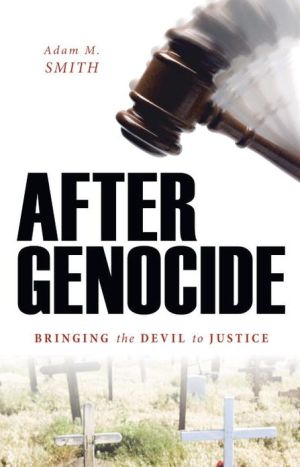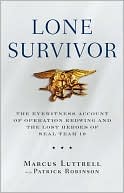After Genocide: Bringing the Devil to Justice
Imagine a criminal justice system that achieves fewer than five convictions per year and spends more than $20 million on each. By some measures, this would make it the least efficient prosecutorial system in recorded history, with the risk of creating rather than deterring more crimes, and one that few victims or perpetrators believe provides fairness. This is the state of international criminal justice today.\ How did one of the bravest and most optimistic expressions of post-Cold War global...
Search in google:
Imagine a criminal justice system that achieves fewer than five convictions per year and spends more than $20 million on each one. By some measures, this would make it the least efficient prosecutorial system in recorded history, consistently running the risk of creating rather than deterring more crimes, and with the dubious distinction that few victims or perpetrators believe it provides fairness or equity. This is the state of international criminal justice today.• How did one of the bravest and most optimistic expressions of post-Cold War global power-the provision of justice to those victimized by atrocious crimes-degenerate into a system in which so few are convinced justice is being done, a system that may well exacerbate the very problems it was designed to fix? • Adam M. Smith, an international lawyer who has worked at The Hague and in the Balkans, as well as for the United Nations and the World Bank, and is the son of a Holocaust refugee, comprehensively examines the complex, politicized world of international criminal justice. Smith reviews the serious shortcomings of the international justice system in several hot spots, including:• The former Yugoslavia, where a one-billion-dollar investment has spectacularly backfired.• Sierra Leone, where the same wartime factions that the international community tried to dismantle remain, and in some quarters are stronger than ever.• Rwanda, where the post-conflict tribunal was met with dismay by all sectors of society, has played second fiddle to the Yugoslav tribunal, operates on a shoestring budget, and receives begrudging cooperation from the Rwandan government.• Sudanand Uganda, where the nascent International Criminal Court has inexplicably replicated many of the same serious problems that plague the former Yugoslavia, Sierra Leone, and Rwanda.• Are other options available to provide the good of justice without the potentially devastating side effects? Smith illustrates the viability of a counterintuitive "solution" to dealing with genocide and other mass crimes: to entrust the challenging, potentially destabilizing work of war crimes justice to the very states affected by the crimes.• After Genocide is indispensable reading for voters, policymakers, and citizens as well as lawyers, academics, and human rights activists who hope that "never again" can be more than a platitude.
Ch. 1 From Budapest to Bondi to Bosnia : an unlikely war crimes journey 15Ch. 2 An odd, misguided debate : is it really international justice or no justice? 31Ch. 3 Left behind 49Ch. 4 The politics of hell : what happened? 83Ch. 5 Falling on deaf ears (part I) : international justice from the ground up 97Ch. 6 Falling on deaf ears (part II) : "unfair and unhelpful" 145Ch. 7 The International Criminal Court and the limits of international justice 195Ch. 8 They say it can't be done 223Ch. 9 Croatia : justice in the shadow of The Hague 283Ch. 10 Conclusion : is it too late to listen to the canary in the mine? 323Notes 347Index 409
\ From the Publisher"An insightful and provocative challenge for supporters of international justice. An important book for anyone interested in human rights and in attaining justice in the wake of atrocities."\ —Justice Richard J Goldstone, First Prosecutor of the International Criminal Tribunals for the former-Yugoslavia and Rwanda, Former Justice of the Constitutional Court of South Africa\ "A wise, persuasive, and yet unsettling book, about how noble humanitarian intentions insulated from local culture, community, and politics often cause perverse unintended consequences… Anyone committed to peace and justice in the world should read this book "\ —Andrew Natsios, Former Presidential Envoy to Sudan, Former Administrator of the US Agency for International Development, Professor, Walsh School of Foreign Service at Georgetown University\ \ \








